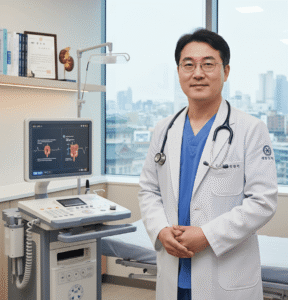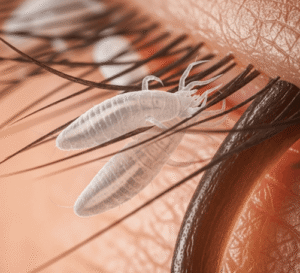In Korea, health is not just about treating illness—it’s about preventing it before it begins. This philosophy lies at the heart of Korean traditional medicine, known as “Hanbang” (한방), which emphasizes harmony, balance, and natural healing. For centuries, herbal medicine has played a vital role in maintaining wellness, supporting the immune system, and improving longevity. Today, as modern science meets ancient wisdom, Korean herbal practices are being embraced globally as a foundation for preventive health care.
The Philosophy of Prevention in Korean Medicine
Korean traditional medicine views the body as an interconnected system. When one element is out of balance—whether due to stress, diet, or environment—it can lead to disease. The goal of Hanbang is to restore equilibrium between the body, mind, and nature before symptoms appear.
➡️ Core principles of preventive health in Hanbang:
• Balance of Yin and Yang: Harmony between cooling (Yin) and warming (Yang) energies keeps the body stable.
• Qi (energy) flow: Unobstructed energy circulation ensures vitality and organ health.
• Personalized care: Each person’s constitution (체질, chejil) determines which herbs or foods best maintain their balance.
• Lifestyle alignment: Sleep, diet, and emotional state are all considered part of prevention.
✅ Insight: Prevention is not about avoiding disease—it’s about sustaining inner balance through mindful living and natural remedies.
The Science Behind Korean Herbal Medicine
Modern research increasingly supports the scientific basis of herbal medicine. Korean pharmacologists and biochemists study traditional herbs to understand their active compounds and effects on the body. Many are now recognized for their antioxidant, anti-inflammatory, and adaptogenic properties.
➡️ Scientific focus areas:
• Antioxidants: Herbs like ginseng and green tea neutralize free radicals that cause cellular damage.
• Anti-inflammatory effects: Ingredients such as licorice root and ginger reduce inflammation linked to chronic illness.
• Immune support: Herbal blends enhance white blood cell activity and antibody production.
• Adaptogens: Certain herbs help the body resist stress and restore hormonal balance.
💡 Modern validation: Clinical studies from Korean universities have shown that consistent use of certain herbal formulas can improve immune response, regulate blood sugar, and reduce fatigue.
Common Korean Herbs for Preventive Health
Korean herbal medicine uses a vast range of plants, roots, seeds, and mushrooms to strengthen the body and mind. Each herb has unique properties suited for specific conditions and body types.
➡️ Most popular preventive herbs include:
• Ginseng (Insam, 인삼): Enhances stamina, immunity, and mental clarity.
• Astragalus (Hwanggi, 황기): Strengthens the immune system and promotes vitality.
• Licorice root (Gamcho, 감초): Harmonizes other herbs and soothes the digestive system.
• Ginger (Saenggang, 생강): Boosts circulation and warms the body.
• Angelica root (Danggui, 당귀): Supports blood health and women’s hormonal balance.
• Schisandra berry (Omija, 오미자): Detoxifies the liver and promotes glowing skin.
• Reishi mushroom (Yeongji, 영지): Reduces stress, enhances sleep, and strengthens immunity.
• Cinnamon bark (Gyepi, 계피): Stimulates digestion and stabilizes blood sugar levels.
✅ Combination therapy: In Korean medicine, herbs are rarely used alone. Instead, formulas are customized by practitioners to balance individual needs and maximize effectiveness.
Herbal Medicine and the Immune System
One of the strongest contributions of herbal medicine to preventive health is immune regulation. Instead of overstimulating the immune response, herbal formulations help it function optimally, ensuring the body is prepared to resist infections.
➡️ Herbs known for boosting immunity:
• Red ginseng: Increases white blood cell activity and antioxidant enzymes.
• Astragalus: Enhances resistance to colds and fatigue.
• Mushroom blends (reishi, shiitake, maitake): Support immune defense and cellular regeneration.
• Jujube fruit (Daechu, 대추): Provides vitamin C and minerals that strengthen immunity naturally.
🌿 Practical application: Many Koreans consume daily herbal teas or tonics to maintain immunity, especially during seasonal changes or stressful periods.
Herbal Medicine for Stress and Fatigue
Korean herbal medicine recognizes that mental and emotional stress can lead to physical illness. Adaptogenic herbs help regulate cortisol levels, support the adrenal system, and enhance resilience to fatigue.
➡️ Popular adaptogenic herbs:
• Ginseng: Improves energy without overstimulation.
• Rehmannia root: Nourishes adrenal glands and supports hormone balance.
• Jujube fruit: Calms the nervous system and aids restful sleep.
• Schisandra berry: Protects the liver from stress-related damage.
✅ Result: Regular consumption of adaptogenic teas or tonics improves energy levels, mood, and focus while reducing long-term burnout.
Detoxification and Liver Health
The liver plays a major role in filtering toxins and maintaining skin and digestive health. Korean herbal medicine places great importance on liver detoxification to prevent systemic imbalance.
➡️ Herbal detox supporters:
• Milk thistle and dandelion root: Enhance liver enzyme activity and detoxification.
• Omija (Schisandra berry): Protects liver cells and improves function.
• Green tea: Rich in catechins that aid detox and fat metabolism.
• Licorice root: Soothes the stomach and supports liver health.
💧 Health connection: A clean, well-functioning liver contributes to clearer skin, better digestion, and increased vitality.
Herbal Medicine and Skin Health
In Korea, beauty and health are interconnected, and herbs are used internally and externally for radiant skin. Herbal medicine focuses on treating the underlying cause — such as poor digestion or toxin buildup — rather than just the surface issue.
➡️ Common herbs for glowing skin:
• Ginseng: Improves blood flow and promotes collagen synthesis.
• Angelica root: Enhances skin elasticity.
• Licorice root: Brightens complexion and reduces inflammation.
• Green tea and barley: Fight acne-causing bacteria and oxidative stress.
✅ Modern use: Many Korean skincare brands incorporate these traditional herbs into topical formulations, blending Hanbang with cosmetic science.
Everyday Preventive Herbal Practices
Korean households often integrate herbal remedies into daily life as simple, effective preventive measures. These rituals are easy to follow and adaptable to modern lifestyles.
➡️ Everyday habits inspired by Hanbang:
• Drink herbal teas like ginseng, omija, or mugwort in the morning for energy and detox.
• Add ginger or garlic to meals to boost circulation and immunity.
• Use herbal baths with mugwort or green tea for relaxation and skin purification.
• Consume seasonal soups like samgyetang (ginseng chicken soup) to restore energy during extreme weather.
• Practice mindful breathing or acupressure along with herbal tonics for holistic balance.
🌸 Tip: Consistency is key. Preventive care works best when herbal practices are maintained regularly, not just during illness.
The Future of Herbal Preventive Medicine
Today, Korean researchers are merging traditional herbal wisdom with biotechnology to create standardized, science-backed formulas. These advancements make herbal medicine safer, more precise, and globally accessible.
➡️ Emerging trends in herbal health:
• Functional foods and beverages: Teas, tonics, and supplements tailored to immune or stress support.
• DNA-based herbal prescriptions: Personalizing formulas according to genetic and metabolic data.
• Eco-friendly cultivation: Organic, sustainable herb farming to preserve potency and biodiversity.
• Integration with modern medicine: Doctors and herbalists collaborating for holistic care.
🔮 Vision: The next generation of preventive health will combine ancient Hanbang principles with modern data science to deliver personalized, sustainable wellness solutions.
Final Thoughts
The role of herbal medicine in preventive health is both timeless and forward-thinking. Korean traditions remind us that wellness is not the absence of disease but the presence of balance, vitality, and inner harmony.
Through herbs that strengthen immunity, calm the mind, and restore balance, people can take control of their health naturally and proactively.
✨ True prevention is not a treatment — it’s a lifestyle. And in Korea, that lifestyle begins with the wisdom of the earth’s oldest medicine: herbs.













